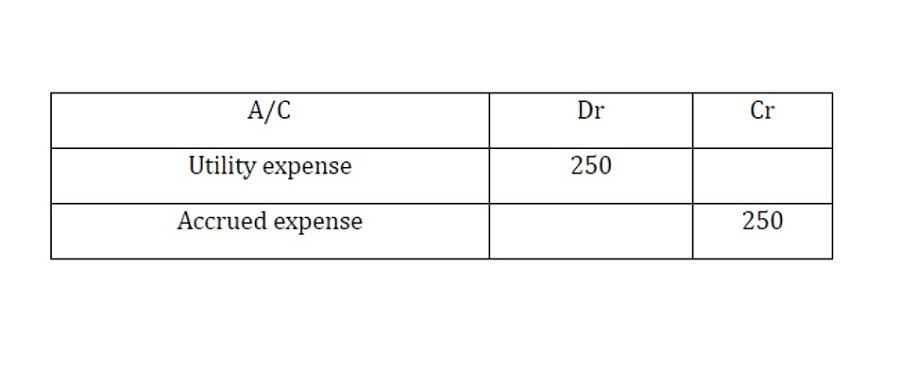
Accountability within the company is guaranteed by transparent retained earnings financial processes, which make reporting regulations easier to comply with. Along with following GAAP principles, you want to consider things like using single vs double-entry bookkeeping. You also want to create a chart of accounts to track your various assets, liabilities, and equity and consider the financial statements you’ll need to generate.

Budgeting for Churches
- It focuses on accountability and stewardship instead than profitability.
- They are in charge of processing donations, keeping accurate financial records, monitoring bank accounts, and tracking financial transactions.
- In this case, you’d now have both administrative costs and campus costs.
- They offer invaluable experience overseeing the church’s financial operations because they are accounting personnel with specific training or certification in accounting or finance.
- That way, when you go to generate accounting reports on your financial activity, it is easy to justify why each fund received the amount of funding that it did.
- There are also various IRS forms that you must keep in mind when it comes to tax compliance.
- And, if everything goes to plan, you can use your additional revenue to create an emergency fund or save for long-term church growth.
Establishing precise financial objectives and priorities makes it easier to ensure that funds are used wisely and that the church successfully carries out its purpose. A well-organized budget that supports the church’s objectives gives members more faith in the organization’s financial management and encourages accountability and transparency. Effective church accounting is crucial for maintaining financial health, complying with regulatory requirements, and fostering transparency and trust within the congregation. By implementing these best practices, your church can optimize its financial church accounting operations and prioritize advancing its mission and the impact of its ministry.
How can Churches Plan for Long-Term Financial Stability?

Ultimately, financial challenges are one of the ways Jesus teaches us as pastors and church leaders how to trust Jesus more deeply and to walk closely to Him. When it comes to church finances though, sometimes I feel like I’m supposed to be. Make sure you communicate to the church about the benefits of regular giving, not only for the church but also for managing their own personal finances. This doesn’t apply to everyone’s situation, and I’m not about to turn down any one-time large sums of money.

Church Accounting Makes Ministry Activities Easier
- Churches must also adhere to Financial Accounting Standards Board (FASB) guidelines, which emphasize disclosing donor restrictions and expense allocation methods.
- However, there are a few small differences between the two that we’ll cover in more detail later.
- Accountability within the company is guaranteed by transparent financial processes, which make reporting regulations easier to comply with.
- Adhering to biblical teachings stresses values that govern financial choices in a religious setting, such as tithing, generosity, and eschewing the desire for money.
- The first command God gave to humanity in the garden was about stewardship.
A key difference between accounting for for-profit versus churches is the concept of fund accounting. Fund accounting stems from the key difference between churches and businesses. It focuses on accountability and stewardship instead than profitability. For-profit entities have a general ledger (or a single self-balancing account), and churches have multiple general ledgers.

Popular Software Options
In this article, we’ll dive into the basics of church accounting and explore the many benefits of using church accounting software. From simplifying tithing management to ensuring financial transparency, we’ve got you covered (check out our in-depth analysis and ranking of this year’s best church accounting software tools). Planning is critical in all aspects of church management, from budgeting processes to the planning process for church growth initiatives. A strategic plan ensures that the church remains focused on its mission, uses its financial resources wisely, and is prepared for future challenges and opportunities. Regularly reviewing Legal E-Billing and updating the plan is important for keeping the church on track.
- Start by listing all potential income sources, including tithes and offerings, fundraisers, and facility rentals.
- Best practices for handling church finances are practical techniques and strategies churches use to improve financial management.
- Maintain detailed and accurate records of all financial transactions and cash flow, including donations, expenses, payroll, and grants.
- I want to be part of a church that gives generously with its finances, but not out of obligation.
- By following these church accounting guidelines and best practices, you can accurately and properly track income and expenses for your church and avoid losing your tax-exempt status.
- 990s help ensure your books are in order, and the more transparent you are with your finances the more donors will trust your church.

To help clarify things, let’s examine some of their basic financial practices and how they differ. This should not be seen as a negative thing but as something that will help catch errors, prevent fraud, and, above all, build trust with your congregation. Ensure all your funds are allocated to proper budgets and purposes (e.g., Children’s Ministry, Missions, Building funds). This will avoid any confusion and ensure that money is being used as intended. But churches must file 1099s and W-2s for staff and freelance professionals. Reconciling your accounts helps catch accounting mistakes and potential fraud.

